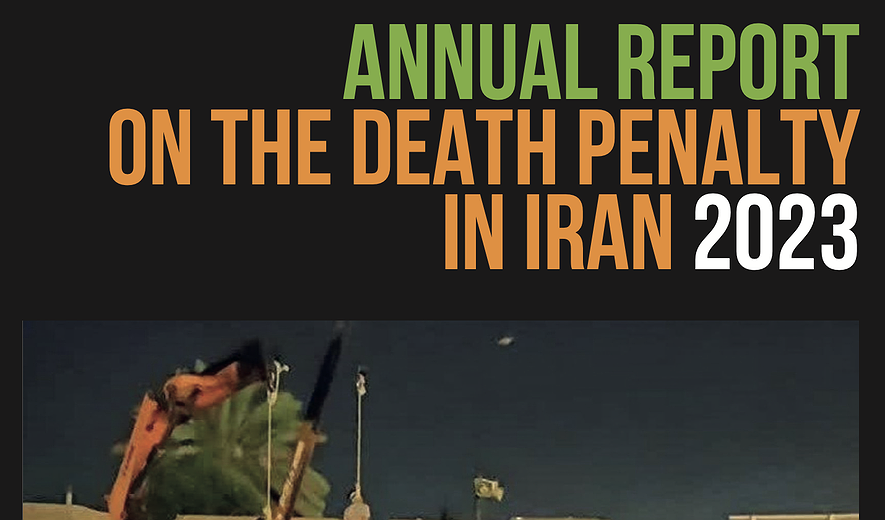Movements Promoting Abolition and Mobilising Civil Society in Iran in 2023
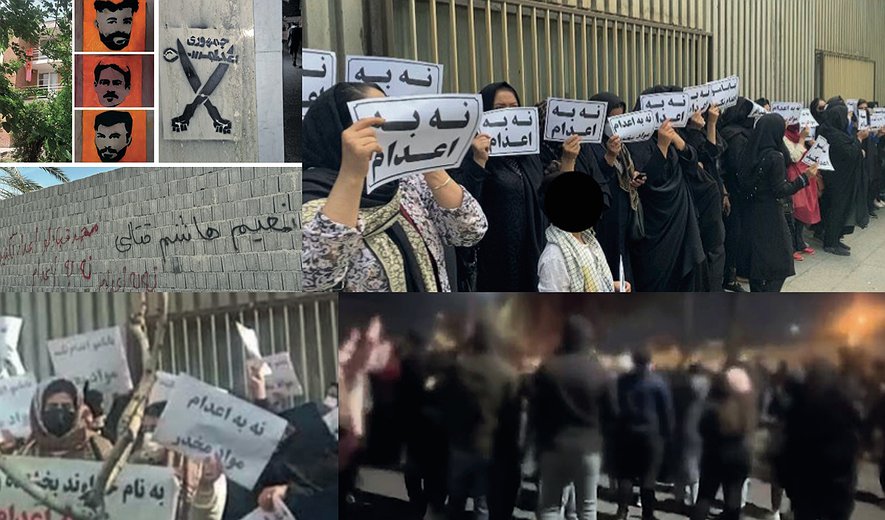
This is an extract from the 2023 Annual Report on the Death Penalty in Iran. To read the full report, please click here.
Over the last three years, there has been a growing trend of Iranians expressing their opposition to the death penalty. This trend reached its 44-year peak to save “Woman, Life, Freedom” protesters, with protests held inside and outside prisons, hunger strikes, acts of protest, including wall writing, and online activism.
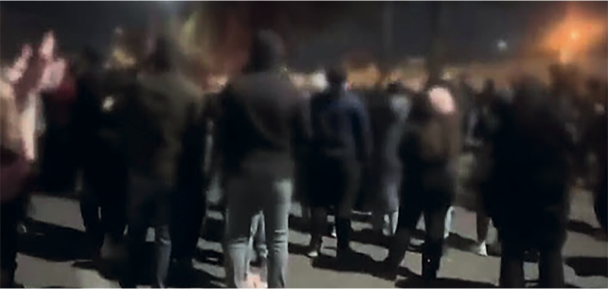
On 9 January 2023, following news that protesters Mohammad Ghobadlu and Mohammad Boroughani were transferred to solitary confinement, their families were joined by ordinary citizens outside Rajai Shahr (Gohardasht) Prison to stop their executions. Their brave action helped save the two protesters’ lives that night.
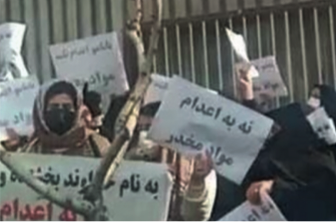
Families of drug death row prisoners who began organising protests in September 2022 have continued their protests despite brutal crackdowns and arrests. On 16 January 2023, families of drug death row prisoners travelled from all over Iran to gather outside the Judiciary building. They held signs that read “no to drug executions”, “don’t execute my dad” and “no death penalty”.
On 25 January 2023, families gathered outside Ghezelhesar Prison after three prisoners on death row for drug-related charges were transferred to solitary confinement in preparation for their executions.
On 16 March 2023, protesters gathered outside Urmia Central Prison to save the life of five prisoners including Kurdish political prisoner Mohiyedin Ebrahimi.[1]
Protests also took place outside Isfahan Central Prison on 14 and 17 May 2023, when protesters Saleh Mirhashemi, Saeed Yaghoubi and Majid Kazemi were transferred to solitary confinement.
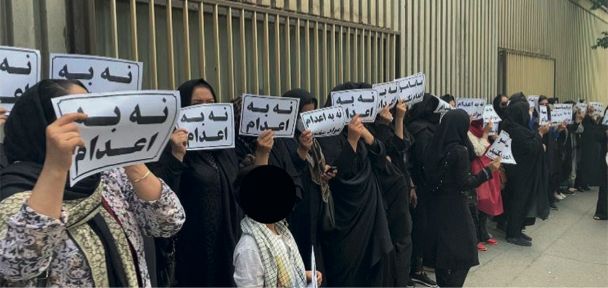
On 24 May 2023, drug death row families gathered outside the Judiciary building once again as executions and drug-related executions in particular were being carried out at an unprecedented rate in recent years.
In addition to public protests on the streets and outside prisons, prisoners have also made their voices heard against the death penalty on a regular basis. This includes messages from prison and physical protests behind bars. When Samad Moradi was transferred for execution on 29 September 2023, other prisoners protested and set their blankets on fire to prevent his transfer. Ultimately, prison guards took Samad out of the ward. Eight prisoners were injured by prison guards.”[2]
Anti-death penalty graffiti and signs have also become more common since the start of the “Woman, Life, Freedom” movement.
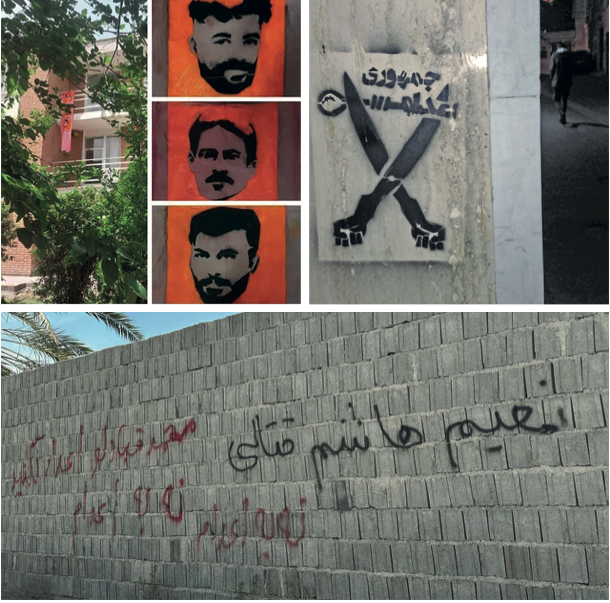
The 2020 #اعدام_نکنید (don’t execute) online campaign, which successfully saved the lives of seven protesters from death row, has expanded to #نه_به_اعدام (no death penalty). Online campaigns shed light on cases and mobilise protests. Anti-death penalty posts have been effectively criminalised through charges and sentences.
Forgiveness movement
As mentioned under the section for qisas executions, according to the IPC, murder is punished by qisas, where the family of the victim can demand a retribution death sentence. But they can also demand blood money (diya) instead of a death sentence or can simply grant forgiveness. This opens an opportunity for citizens to counter the death penalty by promoting forgiveness without being subjected to persecution by the authorities. In the past six years, the movement for forgiveness has grown significantly. Ordinary citizens, celebrities, civil society and other local and national campaigns have been active in promoting forgiveness instead of the death penalty.
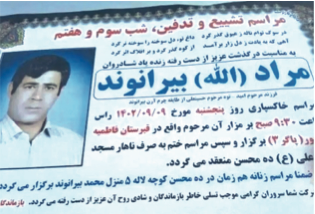
One of the most moving stories was that of Morad Biranvand, whose mother was murdered during the course of an armed robbery while he was on death row for drug-related charges. In an interview, he explained how his views had changed on death row, where he shared cells with the same people he watched being taken to the gallows. “Life is short, and I decided to forgive my mother’s murderer after I gained a better understanding in prison. I don’t expect anything in return and did it for God’s sake.” Morad was executed in Khorramabad Central Prison on 29 November 2023.[3]
[1] See video: https://x.com/IHRights/status/1636492125083774976?s=20
